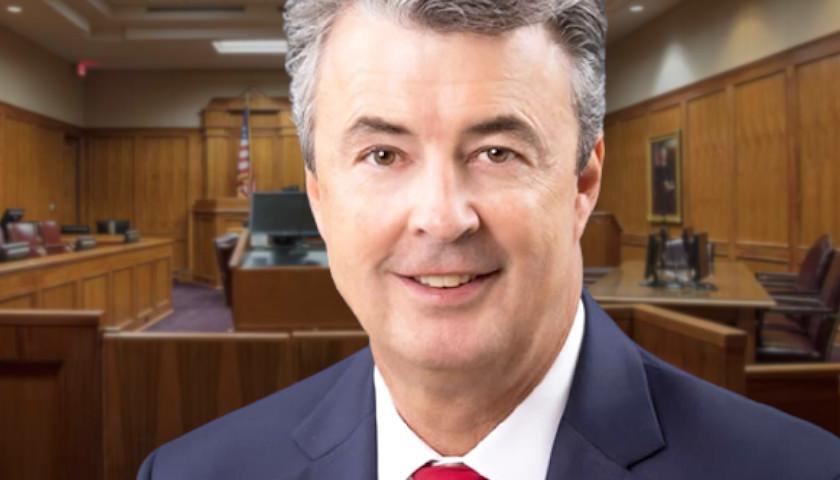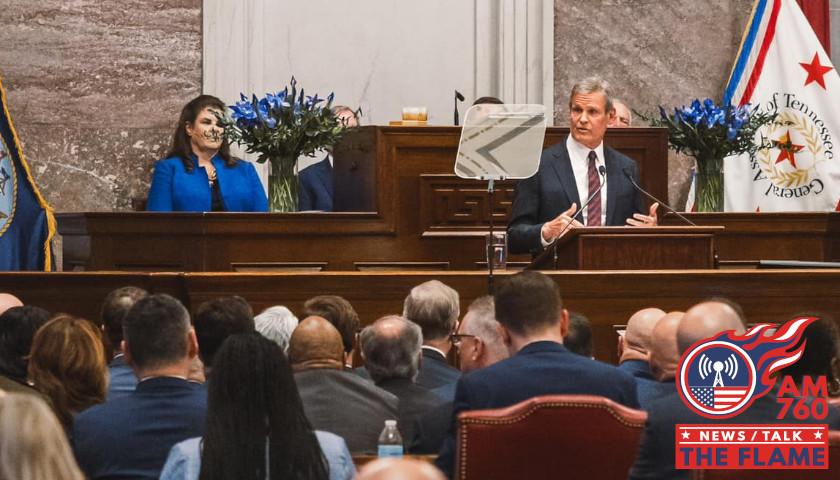Alabama Attorney General Steve Marshall (R) joined an 18-state coalition last week in support of a Tennessee law that protects children from sexually explicit performances.
Tennessee Governor Bill Lee (R) signed the Tennessee Adult Entertainment Act into law in March of this year, which bans “adult cabaret performance” in public or front of children in the state.
The Tennessee law makes taking part in drag shows within 1,000 feet of certain establishments, such as schools and parks, a Class A misdemeanor for first-time offenders, punishable by up to a year in jail. A second violation would be a Class E felony, with a maximum six-year jail sentence.
United States District Court for the Western District of Tennessee Judge Thomas Parker stopped the law from implementation in June, ruling that the law is unconstitutional as it violates freedom of speech protections.
While the law is still being litigated in court, it now has the full support of Marshall, along with attorney generals from 17 other states.
The amicus brief submitted by the coalition of attorney generals contends that the district court erred in assuming that Tennessee acted for an unlawful purpose when it mandated that sexually explicit adult entertainment only take place in adult-only areas and not on public property, which led to its decision to rule against the Act.
According to Marshall (pictured above), Tennessee is nothing unconstitutional about protecting its children from lewd and obscene behavior.
“There is nothing unconstitutional about a State protecting children from sexually explicit performances. Tennessee’s law is like many other longstanding laws that currently govern adult establishments. Contrary to Supreme Court precedent, the district court here was quick to attribute improper intentions to the Tennessee Legislature despite them having obvious and legitimate grounds to implement the law. That approach allows judges to stop the enforcement of laws they believe to be bad policy, and this undermines our system of self-government,” Marshall said.
The plaintiffs claim that the act discriminates against drag performers, yet according to the attorney generals, all sexually explicit acts are subject to the same limitations. The phrase is based on established regulations that apply to bars and clubs for adults. The law specifically prohibits drag performers from giving sexually explicit performances in public places, such as libraries, where minors may be present. Exotic dancers are subject to the same laws.
The brief states, “The district court disregarded decades of precedent that respects the role of legislatures—and state legislatures in particular—in shaping public policy. The Tennessee legislature did not act with an impermissible purpose, and the Court’s holding to the contrary undermines basic principles of separation of powers. The judgment of the district court should be reversed.”
Attorney General Marshall is joined by Alaska, Florida, Georgia, Idaho, Indiana, Iowa, Louisiana, Mississippi, Missouri, Montana, Nebraska, North Dakota, Texas, Utah, Virginia, and West Virginia, on the amicus brief.
– – –
Hannah Poling is a lead reporter at The Ohio Star, The Star News Network, and The Tennessee Star. Follow Hannah on Twitter @HannahPoling1. Email tips to [email protected]








